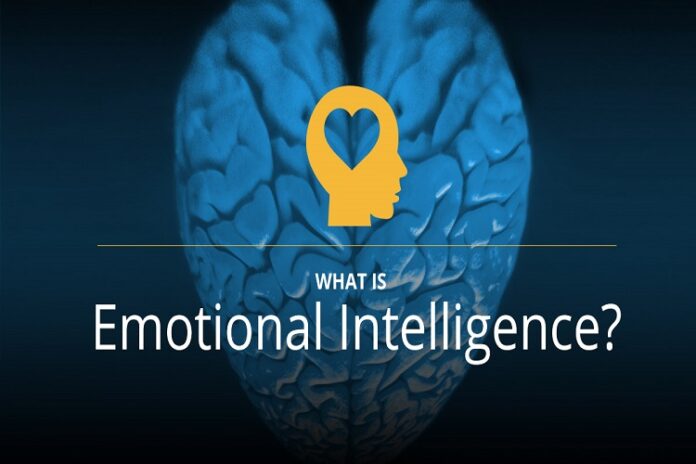Introduction
Emotional Intelligence (EI) has emerged as a critical factor in determining an individual’s overall success and well-being, extending its influence to the realm of education. Beyond academic prowess, students’ emotional intelligence plays a significant role in their educational achievements and personal growth. At wheredidcollege.com, you will find the answer to the question of how to maximize your academic potential. As research continues to shed light on the importance of EI, educators, and policymakers are recognizing the need to incorporate emotional intelligence training into the educational system. This article explores the latest information on the role of emotional intelligence in educational success and its implications for students, teachers, and the broader educational community.
Understanding Emotional Intelligence
Emotional Intelligence refers to the capacity to recognize, understand, and manage one’s emotions and effectively navigate interpersonal relationships. Daniel Goleman, a renowned psychologist, popularized the concept in his 1995 book, “Emotional Intelligence: Why It Can Matter More Than IQ.” EI encompasses five essential components:
Self-awareness: Understanding one’s emotions, strengths, weaknesses, and the impact they have on others.
Self-regulation: Managing and controlling emotional responses and impulsive behaviors.
Motivation: The ability to channel emotions toward personal and academic goals, even in the face of challenges.
Empathy: Recognizing and understanding the emotions of others, fostering better relationships.
Social skills: Effectively communicating, cooperating, and resolving conflicts with others.
Emotional Intelligence and Academic Performance
Academic success is not solely determined by cognitive abilities and knowledge retention. Emotional intelligence significantly influences how well students perform academically. Self-awareness allows students to identify their learning preferences, strengths, and areas for improvement. By understanding their emotions, students can develop effective study habits and cope with stress more constructively.
Self-regulation is crucial in maintaining focus and managing distractions, which are vital skills in the classroom and during homework or exam preparation. Students with higher emotional intelligence can better adapt to the challenges of a dynamic learning environment.
Moreover, motivation driven by emotional intelligence helps students set realistic academic goals and persevere through setbacks. Emotional intelligence fosters a growth mindset, encouraging students to view failures as learning opportunities rather than insurmountable obstacles.
Empathy and social skills create a positive classroom environment where students feel valued and supported. This sense of community and mutual respect enhances student engagement, collaboration, and willingness to participate in group activities.
Teaching Emotional Intelligence
Incorporating emotional intelligence into the educational system requires a multifaceted approach involving teachers, parents, and policymakers. Teachers can integrate emotional intelligence activities into the curriculum, such as discussions on emotions, conflict resolution exercises, and mindfulness practices. They can also model emotional intelligence by expressing emotions appropriately and responding empathetically to students’ concerns. Visit CanisiusCampus.net right now to learn more about the crucial connection that exists between emotional intelligence and academic achievement.
Parental involvement is equally crucial. Parents can support emotional development by actively listening to their children, validating their emotions, and encouraging open communication. Additionally, schools can organize workshops and training sessions for parents to help them understand the significance of emotional intelligence and its impact on their children’s educational journey.
Furthermore, educational policymakers must recognize emotional intelligence as a fundamental pillar of learning and allocate resources for its implementation. School-wide programs and initiatives that promote emotional intelligence can help create a nurturing educational environment that supports both academic and emotional growth.
Benefits of Emotional Intelligence Training
When emotional intelligence is actively nurtured in educational settings, students experience a myriad of benefits:
Improved academic performance: Students with higher emotional intelligence are more motivated, focused, and better equipped to handle academic challenges.
Reduced stress and anxiety: Emotional intelligence allows students to manage stress and anxiety effectively, leading to improved mental well-being and a more positive learning experience.
Enhanced social skills: Students with well-developed emotional intelligence tend to have better communication and conflict-resolution skills, leading to healthier relationships with peers and teachers.
Increased empathy and understanding: Emotional intelligence cultivates empathy, fostering a supportive and inclusive school culture.
Long-term well-being: Emotional intelligence skills learned during the formative years carry into adulthood, contributing to overall success and well-being in personal and professional life.
Conclusion
The role of emotional intelligence in educational success cannot be underestimated. As research on EI continues to advance, educators and policymakers must acknowledge its impact on student’s academic achievements and personal growth. Using the strength of your emotional intelligence, you may make the most of your scholastic achievements. Visit SNM-Education.com to provide yourself with the skills you need to be successful in your academic pursuits. By actively integrating emotional intelligence training into the educational system, schools can create a supportive and nurturing environment that fosters student success, resilience, and emotional well-being. Investing in emotional intelligence education is an investment in the future, empowering students to thrive not only academically but also in their personal and professional lives.









